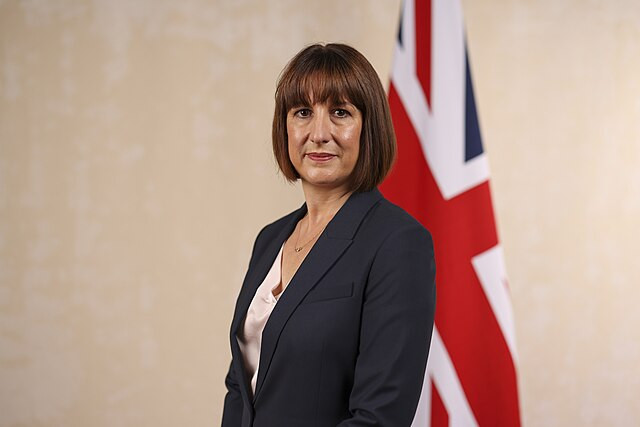The U.K.'s new Labour government unveiled its first budget plan on Wednesday, featuring a sweeping £40 billion ($51.8 billion) in tax hikes aimed at addressing a significant gap in public finances and funding critical investments in public services. Finance Minister Rachel Reeves, delivering the government's debut fiscal plan, emphasized that the difficult choices were necessary to stabilize the economy following years of Conservative leadership.
At the heart of the budget is a notable increase in employers' National Insurance (NI) contributions, which is expected to raise £25 billion annually by 2025. This marks a significant shift, with employers' contributions rising to 15%, from the current 13.8%, on earnings above £5,000-a change from the previous threshold of £9,100. Reeves acknowledged that this was a "difficult choice" but stressed its importance in maintaining the country's fiscal health. "We must restore economic stability and turn the page on the last 14 years," Reeves declared, drawing a clear line between Labour's new direction and the previous Conservative government's policies.
The budget also includes several other tax changes, such as increases to capital gains tax and a freeze on income tax thresholds until 2028. Fuel duty will remain frozen, and the 5p cut on fuel tax will continue for another year. Additionally, inheritance tax thresholds will be frozen until 2030, and alcohol duty rates for non-draught drinks will rise in line with inflation. One of the more surprising measures was a freeze on National Insurance thresholds for workers, which some analysts have described as a stealth tax, potentially impacting middle-income earners.
One of the key areas of investment is the newly established National Wealth Fund, through which the government aims to catalyze £70 billion of infrastructure and public services investments. This move is designed to foster long-term economic growth and modernize the U.K.'s aging infrastructure. The fund will prioritize investments in areas such as clean energy, transportation, and digital infrastructure.
Reeves repeatedly framed the budget as a necessary response to a fiscal "black hole" of £22 billion, which she said was inherited from the previous government. She criticized the Conservative Party for its management of the economy, citing "hundreds of unfunded pressures on public finances" as a key reason behind Labour's ambitious tax hikes. "The party opposite failed our country. Their austerity broke our National Health Service," Reeves stated, echoing a central theme of Labour's election campaign earlier this year.
To balance the budget, the Labour government has also committed to cutting spending by 2% across all government departments, a move designed to further close the fiscal gap. Despite these cuts, Reeves promised that essential services such as the NHS and social care would see increased funding.
In addition to tax reforms and spending cuts, the budget provides relief measures aimed at small businesses and specific industries. For instance, the government has introduced two "permanently lower" business tax rates for retail, hospitality, and leisure properties, providing a 40% relief on business rates for the 2025-26 fiscal year, up to a £110,000 cap. Stamp duty for second homes has also been increased to 5%, a move likely to impact property investors.
The budget's measures come as the independent Office for Budget Responsibility (OBR) released updated growth forecasts, projecting that the U.K. economy will grow by 1.1% in 2024 and 2% in 2025, slightly above previous expectations. Reeves highlighted this forecast as evidence that Labour's fiscal policies are already beginning to stabilize the economy.
However, critics have voiced concerns about the timing of the budget, with some arguing that Labour should have introduced its fiscal plan sooner, following the party's July 4 election victory. The delay, they claim, created uncertainty for businesses and consumers, particularly amid ongoing concerns about inflation and interest rates. Despite this, the budget's measures are seen as a bold attempt to recalibrate the U.K.'s economy and address long-standing fiscal challenges.
While the tax hikes represent the largest increase since 1993, Reeves emphasized that the government remains committed to keeping taxes on "working people" steady, pointing to the continued freeze on VAT and personal income tax. She also announced a series of social reforms, including a boost to the national living wage, which will increase by 6.7% to £12.21 an hour for workers aged 21 and over. Younger workers will also benefit, with the minimum wage for 16- to 20-year-olds rising by 16.3% to £10 an hour.
Reeves closed her budget speech by reinforcing Labour's commitment to long-term economic growth, pledging to move beyond the "short-termism" of the past. The budget, she argued, would put "more pounds in people's pockets" and set the foundation for a more prosperous and stable future.






